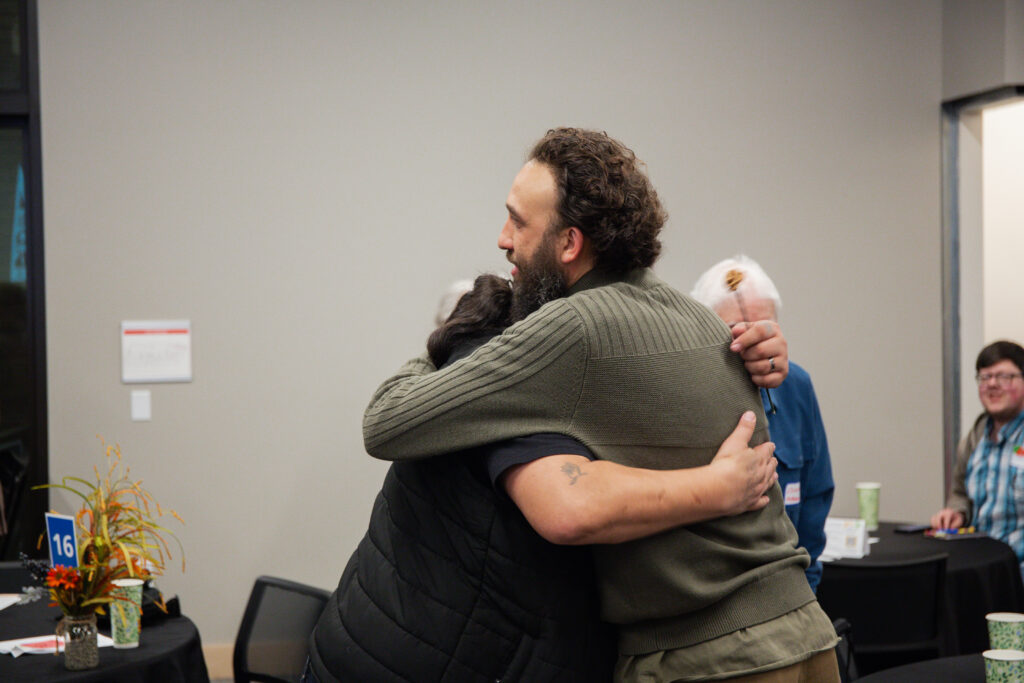
Something big is happening in our country, and not in a flashy headline kind of way.
It’s quieter than that—but no less urgent.
Across the United States, people are feeling lonelier and more disconnected than ever. Even as we live closer together and connect more often online, we’re growing farther apart in real life. Robert Putnam’s research shows the breakdown of social connection, the rise of loneliness, and the increased separation of groups by politics, income, race, age, and worldview. Many Americans now live in “in-groups” where most people look, think, and vote like they do. Some of these in-groups are only virtual.
At Paths to Understanding, we’ve been watching this unfold for a while. And we’ve come to believe this is one of the defining challenges of our time: how do we create a sense of belonging in a culture that’s pulling itself apart?
The good news? Around 70% of Americans know something’s wrong—and they want to do something about it. They’re looking for ways to reconnect across lines of difference. They just don’t always know where to begin.
This is where PTU plays a part.
We believe people change at the pace of relationship. That’s not just a nice idea—it’s a strategy grounded in real life. Our work grows from an ancient, human truth: people connect over food, stories, and shared effort. That’s how we’ve built trust across cultures for thousands of years.
Our programs, like Let’s Go Together and the Potluck Project, create simple but powerful opportunities for groups to come together: to eat, to serve, to honor one another. These moments plant seeds of trust, especially across the social distances that have widened in recent years. The Challenge 2.0 program and our Paths to Understanding podcast share the story on TV, YouTube, and podcasting services
And yet—we know this moment asks more of us.
Our current mission statement says we’re “bridging bias and building unity through multi-faith peacemaking.” That’s still true, but we’re realizing it’s not the whole truth. Religious identity is just one piece of how people are divided today. Many folks don’t see themselves reflected in that phrase—especially the 80% of people in our region who don’t regularly take part in a faith tradition.
We don’t want to move beyond our multi-faith roots. But we do want to grow from them.
Inspired by the legacy of our founders, Rabbi Levine and Father Treacy—who built bridges across differences long before it was popular—we’re asking deeper questions:
- What is our risk tolerance in this moment?
- Do we have the right relationships, resources, and clarity to meet what’s ahead?
- And how can our mission grow to meet the spiritual hunger of our time, especially among people who long to belong but may not know where to turn?
We have reasons to be hopeful. While we don’t currently have the media reach that our founders had with the original Challenge program on KOMO TV, we do have something else: 400,000+ gathering places across the country—in churches, mosques, temples, nonprofits, and community spaces. These places already know how to host meals and conversations. They just need a little help navigating the complexity of culture and identity today.
At PTU, we’re here to support them.
Over the coming weeks, we’ll be exploring how our mission can better reflect today’s reality—and tomorrow’s hope. We’ll be asking what it means to re-humanize one another in a time of fear and fragmentation.
Because if there’s one thing we know for sure, it’s this:
The human family can still find its way—together.
